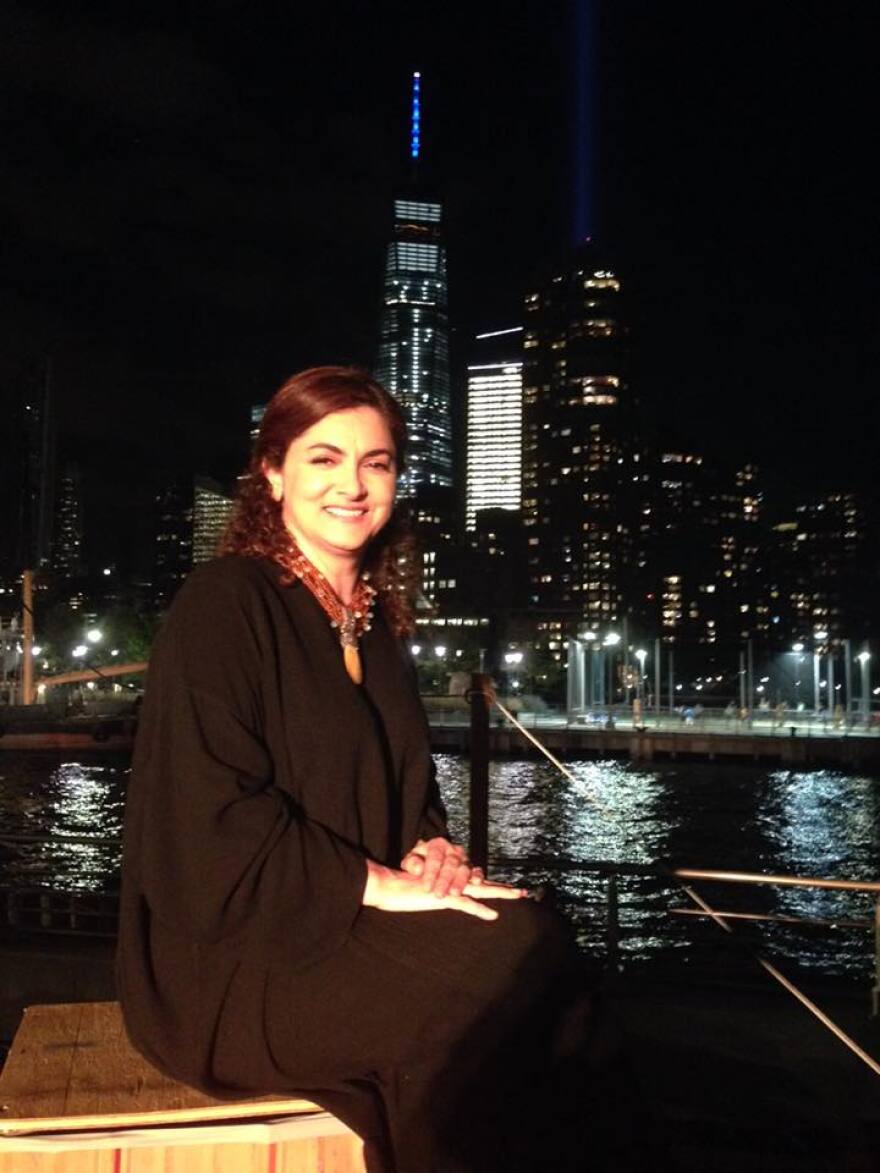"I save everything I have from Syria. And that’s what I do in my music."
Gaida
Syrian singer and songwriter Gaida is featured this Friday evening at Wesleyan University. Gaida performs innovative interpretations of traditional Syrian songs -- improvisations over Arabic grooves -- and she composes original music.
Gaida spoke to me recently from her apartment in New York City. She said her story with music begins back with her family in Syria. Everyone sang or played a musical instrument, but it wasn’t until she arrived in the U.S. at 26 years old to study biology that she even began to consider music as a profession. She works now both as a singer and a speech and language pathologist.
Gaida: I think I chose a job that could pull the two together: Speech and language pathology. I treat people with voice disorders and I work with professional singers. Works fine!
WNPR's Diane Orson: Let’s talk a little bit about your singing, which is so haunting and beautiful. I’m wondering: are you hearing more intervals between notes than traditional western musicians? Is that what accounts for that beautiful ornamentation and phrasing that you do?
There’s the Arabic quarter tone that we use. Simon Shaheen -- one time he described it perfectly: imagine the piano with the black keys and the white keys. Imagine a red key between them that split the note into two, so you have a quarter tone, instead of just a half tone. So you kind of have to hear it in order to sing it.
I want to ask you a little bit about your experience as a Syrian artist at this point in time, and the crises that are facing the nation of your birth. I’m wondering if you feel a kind of responsibility to address these crises through your art. If so, how you do that?
It's very difficult. It kind of plays both ways. Its places a restriction on me, and at the same time, responsibility. And that pull and opposite both sides, is very, very complicated. It creates a dilemma in the mind and the soul of the artists. From one side, the crisis is too close to me that sometimes it silence me. And it did silence me.

How did it silence you?
The trauma of it silence me. It’s too hard. You know, when it’s too close to you, you can’t talk about it. ...When you’re too much in it, when the people who are so close to you are displaced, when your family – some of them in Turkey, some of them in Holland, some of them in Germany, and the ones who are left there, how are they doing in their day-to-day life? So, it’s too much close to you that somehow the creative part leaves you.
But then, your responsibility as an artist. And that is where the bigger problem comes – what should you say, what you should not say.
But the best thing I find is to preserve the existence, the basic existence of our culture. To see the news in the last five years, that is only talking about one thing, it just diminished the culture, diminished everything about the Syrians into one thing.
So, you see me... I save everything I have from Syria. I save medicine that was made in Syria. I save tea that was made in Syria. I save stuff as if I am afraid of it... that I’m going to lose it forever. And that’s what I do in my music.
I save the music. At least: save the music. Tell the stories about the people, their love stories, survival stories. These people -- if anybody wants to learn how to survive, talk to a Syrian. They know how to survive. And they will survive this.


